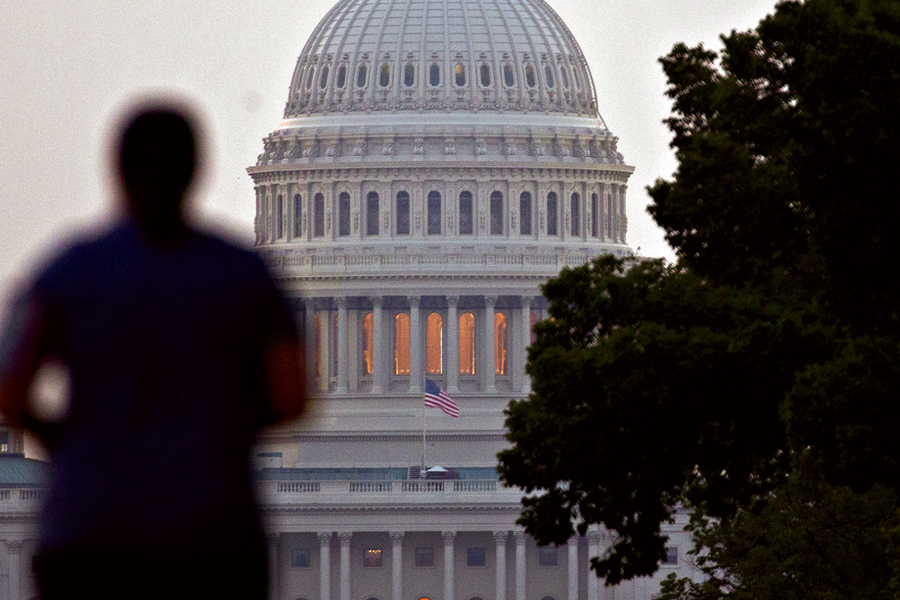While it's not surprising that the Setting Every Community Up for Retirement Enhancement (SECURE) Act is tangled in a political decision-making web, it's reassuring that the conversation about helping Americans save for retirement is still on the docket.
After all, this would be the most significant retirement legislation since the Pension Protection Act of 2006, which among other reasons, is why financial advisers must consider the potential challenges and opportunities once the law is passed. (Fingers crossed for this year.)
Before we get into what it could mean for advisers, here's a quick, closer look at the SECURE Act.
Access conundrum
Despite numerous tax incentives and other nudges since the enactment of ERISA more than 40 years ago, at the end of 2013 only 51% of the private workforce in the U.S. was saving in defined-contribution plans, barely above the 50% participation rate in 2006.
State and federal governments have solutions for this access issue. For instance, Oregon, Illinois and California have enacted state-sponsored mandated retirement plans for employers that don't sponsor a plan. SECURE encourages the creation of "open"
multiple employer plans so that small employers can band together to form one plan to cut costs and create administrative efficiency. And the departments of Labor and Treasury have also just acted on the nexus rule and the
one bad apple rules that have constrained the formation of open MEPs.
(More: The SECURE Act: Completing an unfinished masterpiece)
Lifetime income: The final frontier
With the continuing evolution of the U.S. retirement system from defined-benefit to defined-contribution plans, DC plans have incorporated the best elements of both, including automatic enrollment and professionally managed investments such as target-date funds.
Now policymakers are promoting lifetime income proposals, some of which are included in SECURE. These include a new fiduciary safe harbor for employers choosing an annuity provider, including lifetime income illustrations on benefit statements, and increasing portability of lifetime income options.
(More: The SECURE Act could ruin your 401(k))
Fiduciary rules live on
Although the Department of Labor's fiduciary regulation was overturned by the Fifth Circuit, fiduciary regulation continues, both at the federal and state levels.
In June, the Securities and Exchange Commission finalized its best-interest regulation, which will take full effect in June 2020. Although the regulation will change some adviser business practices, it creates a clearer and less onerous path for advisers providing advice to their clients.
The DOL also recently announced its intention to issue further fiduciary guidance in addition to the SEC's regulation. Finally, some states, including Nevada and New Jersey, are moving forward with their own fiduciary regulations.
[Recommended video: Jamie Hopkins: Depression risk in retirement]
What these changes mean:
• Government action on access and coverage means more workers will have access to a retirement plan. Although the state-sponsored programs appear to preclude financial adviser assistance, these programs provide an opportunity for advisers to approach employers to establish a more robust plan. The state requirements to sponsor a plan or be part of the state-sponsored plan will force employers to look more closely at other options.
• Lifetime income is a topic of increasing concern for both plan sponsors and participants. It's a workforce management issue for employers as they seek to promote younger workers, but want to ensure that older workers can retire comfortably. Employees need to understand how to manage their retirement assets, and advisers can help both plan sponsors and participants as they manage the transition to post-career income.
With more lifetime income options becoming available, the opportunity to provide those options to plan sponsors and participants for a portion of their savings increases the value that advisers bring to their clients.
• Advisers need to monitor state fiduciary regulations and the impact on their local offices. With the SEC finalizing its best-interest regulation in coordination with the DOL, together with more workers having plan coverage, financial advice will continue to be important.
At this point, it's difficult to predict whether the SECURE Act will get time on the Senate floor. There's a chance it could get tethered to the spending plan discussions in September. Either way, best be prepared.
(More: Advisers resist SECURE Act provision to limit inherited IRAs)
Melissa Kahn is managing director of retirement policy for the defined contribution team at State Street Global Advisors.







